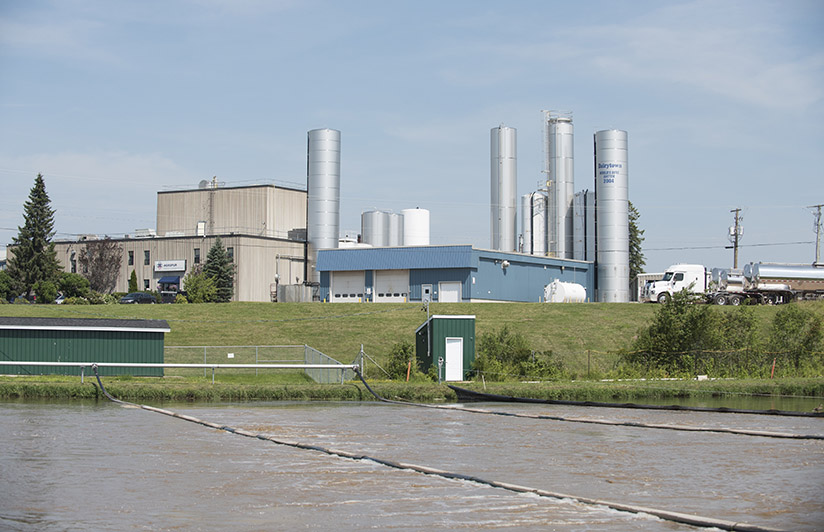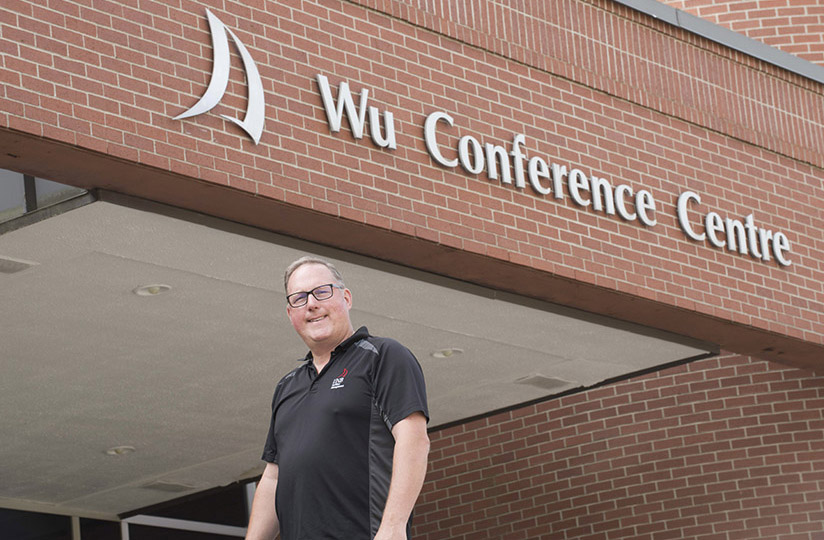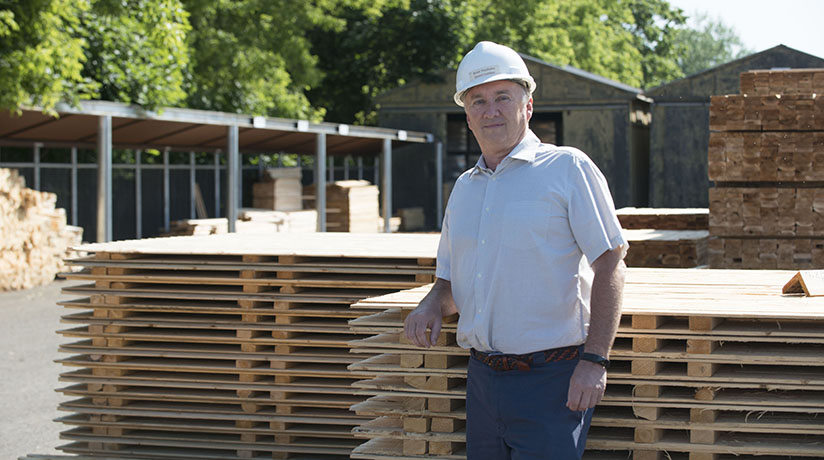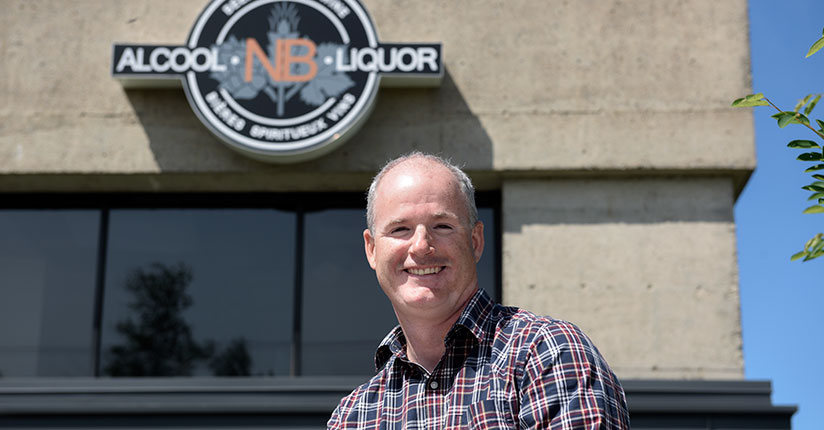Success Stories
Agropur

| Agropur Dairy Cooperative, Sussex |
|---|
| Demand reduction measure: Demand reduction measure Shut off aerators, air compressors, lighting and refrigeration. |
| Average demand reduction: 231kW |
| Incentive: $4,620 |
|
Agropur Dairy Cooperative, located in Sussex, New Brunswick, committed to helping NB Power “beat the peaks” in the winter of 2018/19 by turning off aerators and air compressors at their waste water plant and turning off lighting and refrigeration at their main processing plant. “The waste water plant was very easy to shut down. Shutting down the main plant was harder because things operate 24/7 in there” said Steve Humphrey, Maintenance Manager. Steve said they tried their best to achieve reduction at the main plant by focusing on lighting and refrigeration, now they’re thinking of new ways to reduce their demand next year. For their efforts and average reduction in the 2018/19 winter, Agropur received a $4,620 payment. Steve said Agropur employees were on board with the Peak Rebate Program from the start and they’re looking forward to participating again. “It was a great opportunity to take advantage of the rebate, while helping NB Power with their goal to reduce peaks on the grid.” |
University of New Brunswick, Fredericton

| University of New Brunswick, Fredericton |
|---|
| Demand reduction measure: Slow down fans and turn down electric based heat |
| Average demand reduction: 105kW |
| Incentive: $2,100 |
|
For the University of New Brunswick Fredericton Campus, energy efficiency has been a long-standing focus. That commitment led to the University’s participation in NB Power’s Peak Rebate Program. “This Program was another opportunity for us to learn about and support energy reduction strategies of NB Power,” said Tom Gilmore, Energy Manager, UNB. Tom said that like the other programs that UNB has participated in, NB Power made it very easy to take part. To reduce demand during peak periods, UNB slowed down fans and turned down electric heat after preheating. As a result, they received a rebate of $2,100 for their reduction. “We strived to ensure the building occupants were unaffected and we were successful -- the University’s participation in program went virtually unnoticed.” Tom said since UNB is a predominantly steam heated campus, reducing demand during peak hours can be a challenge, but are committed to continued participation to help ‘beat the peaks.’ “We look forward to continuing to support these types of initiatives in any way possible.” |
Devon Lumber

| 200 Gibson St, Fredericton, NB |
|---|
| Demand reduction measure: Defer start-up of sawmill and planer |
| Average demand reduction: 228kW |
| Incentive: $4,560 |
|
Devon Lumber, one of the oldest family-run saw mills in New Brunswick, decided to participate in the Peak Rebate Program because it was a chance to save themselves and NB Power money plus energy. “Anything we can do to save ourselves some money and reduce costs for NB Power, we’ll do,” said Brian Trenholm, Chief Financial Officer at Devon Lumber. To achieve their reduction, Devon Lumber turned off heaters and compressors then reallocated their work elsewhere. The lumber mill would also delay their start-up time until after 9:00AM on peak event days. As a result, in the winter of 2018/19, Devon Lumber received $4,560 for their energy reduction. Brian said the program was not a difficult sell internally, and good internal communication with their finance department and mill employees helped to ensure the program goals were clear and that equipment wasn’t turned on during peak events. |
Alcool NB Liquor

| 170 Wilsey Road, Alcool NB Liquor , Fredericton, NB |
|---|
| Demand reduction measure: Used back-up generator as power supply during each event, from 7:00 am - 9:00 am |
| Average demand reduction: 206kW |
| Incentive: $4,120 |
|
Alcool NB Liquor (ANBL) committed to partnering with NB Power to “beat the peaks” during last winter at their Wilsey Road location. By utilizing their back-up generator during each reduction request they received a $4,120 payment in the 2018/19 winter. “It was worthwhile and very easy to participate in the program,” said Mike Harty, Director of Properties and Facilities at ANBL. “We have our own internal energy targets and we also want to contribute to the greater good, to help ‘beat the peaks,’ so we see it as a win-win all around. We would definitely recommend the program to others.”
|








